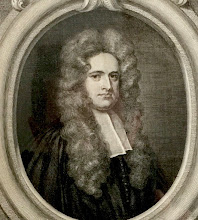Monday, August 17, 2020
The American National Paradox
Among the beliefs of many American conservatives is the somewhat vague notion of “American exceptionalism.” This concept can be many things to different people. Those who are offended by the idea of Americans calling their country “exceptional” merely see the statement as one of arrogance and of nationalistic excess, but this is not the case at all. American exceptionalism is the acknowledged attribute of a unique style of government and society that minimizes the role of the state and imposed collective values. American exceptionalism is limited constitutional government in context to the unique history of the United States. This is an objective appraisal that the former president, Obama, was unable to make when he said he believed in American exceptionalism the same way that Brits believe in British exceptionalism or Greeks believe in Greek exceptionalism — meaning that he didn’t see the country he was president of as particularly exceptional at all. Like all leftists, he had a disdain for America and its history. To the authoritarian bureau-class, American history is no more than slavery, oppression, and injustice, meaning their understanding of history in general is remarkably limited.
American exceptionalism can been seen as a paradox. The opposite of America’s constitutional system are the varieties of collectivism that span the political spectrum. Values born of race affiliation, obedience to a party or individual autocrat, or other self-effacing belief systems that seek to mold citizens into one monolithic collective unit which necessitates the sacrifice of autonomy and freedom for the values and dictates of a group of some kind. For Nazi’s, it is the “race” that compels affiliation. For fascists, the “state” as an end in itself seeks to be the unifying principal that sways one away from self, family, or any of the other organizing social principals that a free person can choose alignment with. For communists, an ideology regrading economic “evolution” and class draws from the premises of the dead white male economics “philosopher,” Karl Marx (though his observations had been made by others to some degree). To establish any of these systems requires an allegiance to collectivist principals of some kind, to forfeit one’s sense of self-directed destiny to the dictates (literally) of some organizing principal that seeks to eradicate any idea or person lacking alignment with the collectivist vision.
The paradox of American exceptionalism lies in its expectation that one feels aligned to American ideals of government and social living that include the freedom to not participate.
One can be a proud believer in American exceptionalism — and thus “patriotic” to some degree — by a belief in opting out of any collectivist siren call - a paradox. One can hold a fervent belief in the American idea while choosing to not participate and not demanding the participation of others. A consistent belief in freedom requires that one never compels others to a particular cause. It’s certainly reasonable to expect fellow citizens to not destroy property or actively seek to eliminate free society.
There are of course nationalistic types who seek to compel others to patriotic obedience but these are ultimately collectivist in nature. A person can be a caricature of conservatism and yet be a collectivist and possess collectivism’s characteristic adulation of group affiliation.
The paradox of the America circumstance is that one can love the constitutional system and the culture born up around it but, if one truly appreciates it, they realize that there is no demand from them or fellow citizens to live within forced affiliation. It is affiliation by choice and is far removed from the dogmatic systems of history that have demanded conformity and communal sympathy.
When rich celebrities kneel at the sound of the national anthem or chant insults at the country’s founders, they are free to do so, and wiser and less-hypocritical souls are free to mock them and sneer at their pathetic arrogance. Colin Kaepernick is free to be an asshole but if he chooses to use his public forum to do so he is worthy of scorn by those who see through his nonsense.
What I love most about my country is that I don’t have to love it or any other ideas others would wish to be imposed upon me. Realistically, one can hold this stance (a support for the American ideal) yet resent the pampered whining of those who’s ultimate hatred of America rests upon a desire to force fellow citizens into a collective bondage of some type.
Unfortunately, being a leftist control freak is not exceptional.

